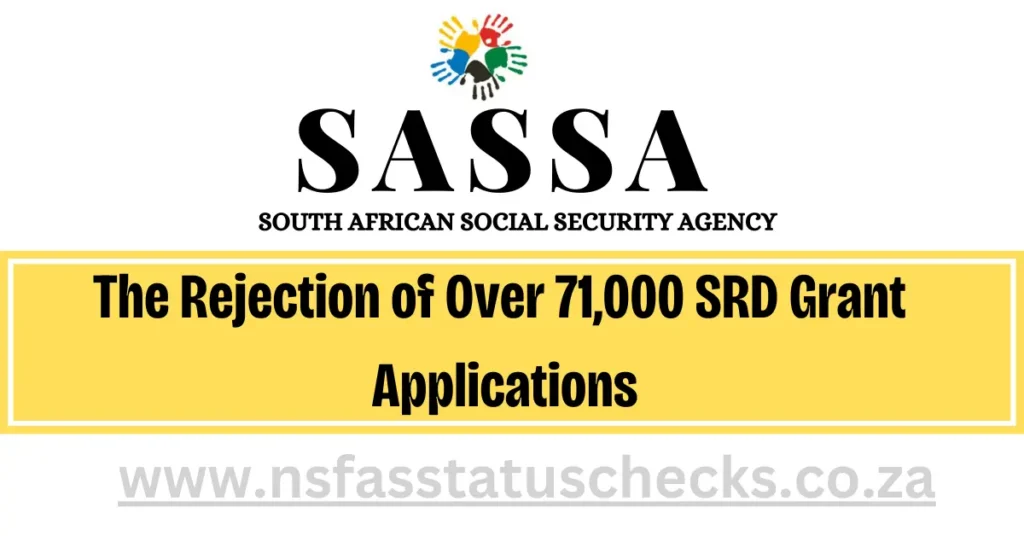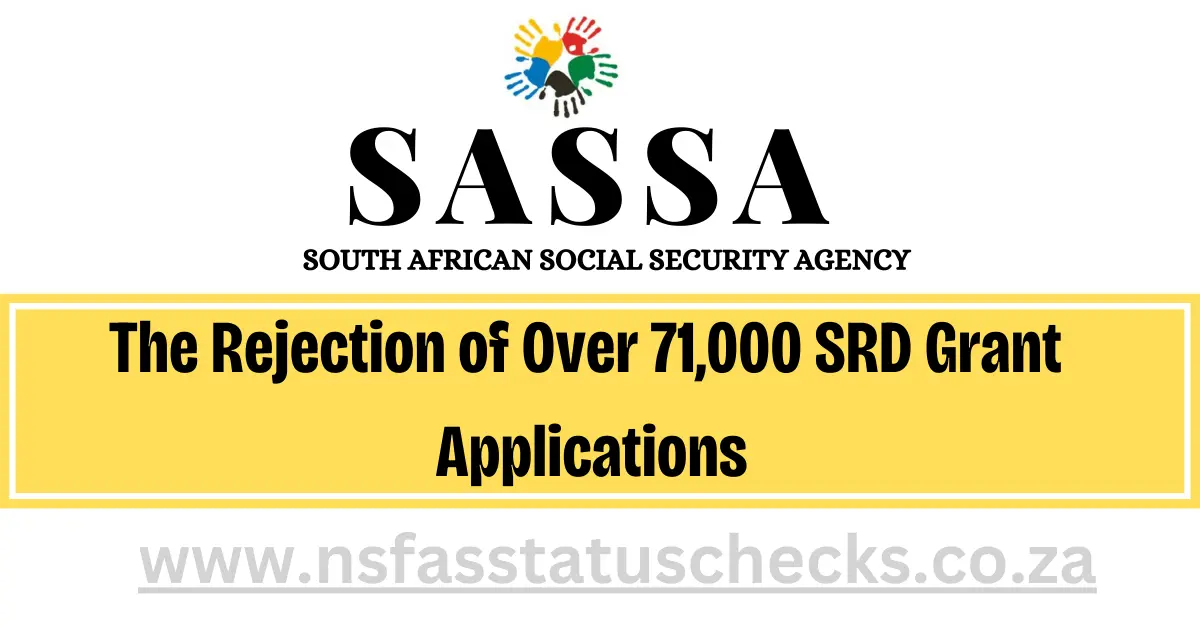In recent news, it was reported that over 71,000 applications for the SRD (Social Relief of Distress) grant were rejected. This development has caused concern and frustration among many South Africans who were relying on this grant for financial assistance during these challenging times.

The Application Process
To apply for the SRD grant, individuals were required to meet certain criteria, including being a South African citizen or permanent resident, being above the age of 18, and not receiving any other form of social grant. Applicants were also required to submit relevant documentation to support their application.
Reasons for Rejection
There are several reasons why an application for the SRD grant may have been rejected. One of the most common reasons is incomplete applications, where applicants fail to provide all the required information or documentation. Another reason could be ineligibility, where applicants do not meet the criteria set out by the government. Errors in documentation, such as providing incorrect or outdated information, could also lead to rejection. You can find out more about SASSA Grants Cash Disbursement Changes here.
Impact on Applicants
The rejection of over 71,000 SRD grant applications has had a significant impact on the affected individuals. Many of them were relying on this grant to cover essential expenses such as food, rent, and utilities. The rejection has caused financial strain and emotional distress, as these individuals now have to find alternative sources of support.
Response from Authorities
In response to the rejection of these applications, the authorities have provided clarifications on the criteria and requirements for the SRD grant. They have also introduced an appeal process for those whose applications were rejected. This process allows applicants to provide additional information or correct any errors that may have led to the rejection of their application.
Government Response
The government has acknowledged the high number of rejections and has pledged to review the applications to ensure that all eligible applicants receive the assistance they need. However, the process is expected to take some time, leaving many applicants in limbo.
Public Reaction
The rejection of over 71,000 SRD grant applications has sparked outrage among the public, with many questioning the criteria and process used to assess these applications. There have been calls for the government to review the rejection criteria and provide more support to those who have been affected. Don’t forget to check out NSFAS Status Check.
Conclusion
The rejection of over 71,000 SRD grant applications has highlighted the challenges faced by many South Africans during these difficult times. It has underscored the importance of providing support to those who are most vulnerable and ensuring that the application process for social grants is fair and transparent.
FAQs
Why were over 71,000 SRD grant applications rejected?
The applications were rejected for various reasons, including incomplete documentation and failure to meet the eligibility criteria.
What impact has the rejection had on the applicants?
Many applicants were left without the much-needed financial assistance, leading to increased financial hardship.
How has the government responded to the rejection of these applications?
The government has pledged to review the applications to ensure that all eligible applicants receive the assistance they need.
What challenges did applicants face during the application process?
Applicants faced difficulties in accessing the online application portal, long processing times, and delays in receiving feedback on their applications.
What has been the public’s reaction to the rejection of these applications?
The rejection has sparked outrage among the public, with many questioning the government’s handling of the situation.
